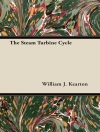A recent development in SDC-related problems is the establishment of intelligent SDC models and the intensive use of LMI-based convex optimization methods. Within this theoretical framework, control parameter determination can be designed and stability and robustness of closed-loop systems can be analyzed. This book describes the new framework of SDC system design and provides a comprehensive description of the modelling of controller design tools and their real-time implementation. It starts with a review of current research on SDC and moves on to some basic techniques for modelling and controller design of SDC systems. This is followed by a description of controller design for fixed-control-structure SDC systems, PDF control for general input- and output-represented systems, filtering designs, and fault detection and diagnosis (FDD) for SDC systems. Many new LMI techniques being developed for SDC systems are shown to have independent theoretical significance for robust control and FDD problems.
Innehållsförteckning
Developments in Stochastic Distribution Control Systems.- Developments in Stochastic Distribution Control Systems.- Structural Controller Design for Stochastic Distribution Control Systems.- Proportional Integral Derivative Control for Continuous-time Stochastic Systems.- Constrained Continuous-time Proportional Integral Derivative Control Based on Convex Algorithms.- Constrained Discrete-time Proportional Integral Control Based on Convex Algorithms.- Two-step Intelligent Optimization Modeling and Control for Stochastic Distribution Control Systems.- Adaptive Tracking Stochastic Distribution Control for Two-step Neural Network Models.- Constrained Adaptive Proportional Integral Tracking Control for Two-step Neural Network Models with Delays.- Constrained Proportional Integral Tracking Control for Takagi-Sugeno Fuzzy Model.- Statistical Tracking Control – Driven by Output Statistical Information Set.- Multiple-objective Statistical Tracking Control Based on Linear Matrix Inequalities.-Adaptive Statistical Tracking Control Based on Two-step Neural Networks with Time Delays.- Fault Detection and Diagnosis for Stochastic Distribution Control Systems.- Optimal Continuous-time Fault Detection Filtering.- Optimal Discrete-time Fault Detection and Diagnosis Filtering.- Conclusions.- Summary and Potential Applications.
Om författaren
Author 1: Professor Lei Guo:
2003–present: Full professor with research activities on stochastic control, nonlinear control, filter design and fault detection, in Institute of Automation, BUAA, Beijing, P R China. He is also affiliated as a full professor with Research Institute of Automation, Southeast University, China.
2002–2003: Research fellow at Dept. Paper Science, UMIST, Manchester, UK.
2001–2002: Research associate in Department of Automobile and Aeronautical Engineering, Loughborough University, UK;
2000–2001: Research associate in Department of Mechanical Engineering, Glasgow University, UK;
1999–2000: Postdoctoral research fellow in IRCCy N, CNRS, Nantes, France, sponsored by Pays de la Loire project.
Following Professor Guo’s previous work on stochastic distribution control at UMIST, his recent research is mainly focused on the new developments of non-Gaussian filtering algorithms for signal processing and the shape control of stochastic distributions using LMIs. This includes the developments of nonlinear observers and LMI techniques for adaptive tuning rules for nonlinear systems.
Professor Lei Guo will (with John Bailleul of Boston University) be general chair of the IEEE Conference on Decision and Control and Chinese Control Conference being held jointly in Shanghai in December 2009.
Author 2: Professor Hong Wang:
1982: Received the BSc (first class) degree in Electrical Engineering from Huainan University of Technology, Anhui, P.R. China
1984: Received the MEng (first class) in Automatic Control from Huazhong Univ.Science & Tech, Wuhan, P.R. China
1987: Received the Ph D degree in Power Systems Automation from Huazhong Univ. Science & Tech., Wuhan, P.R. China, received an outstanding Ph D thesis award and three best papers awards.
2004–present: Professor in Process Control, Director of the Control Systems Centre, School of Electrical and Electronics Engineering, The University of Manchester (formally UMIST), Manchester, working on the control of stochastic distributions for stochastic systems, fault diagnosis and fault tolerant control andcomplex systems modeling.
2002–2003: Professor in Process Control, Control Systems Centre, UMIST, Manchester.
1999–2002: Reader in Process Control at UMIST, working on stochastic distribution control, fault diagnosis and complex systems modeling.
1997–1999: Senior lecturer in Process Control at UMIST, working on stochastic distribution control, fault diagnosis and complex systems modeling.
Prof Wang is a fellow of IEE, fellow of Inst MC and IEEE Senior Member, and acted as an associate editor for the leading control theory journal (IEEE Transactions on Automatic Control), board member for 4 international journals, and a member of the IFAC Safeprocess Committee, the IFAC Adaptive and Learning Systems Commitee and a member of the IFAC Stochastic Systems Committee. He is the originator of probability density function shape control and has published 190 papers in international journals and conferences (25 invited papers). He is the leading author of 3 books.
His research activites have been focused on: i. stochastic distribution control and filtering of general non-Gaussian dynamic stochastic systems and closed-loop entropy minimization; ii. fault detection, diagnosis and fault-tolerant control for dynamic systems; iii. artificial-neural-network-based control systems design and applications to complex systems such as papermaking, combusion systems and systems biology; and iv. plant-wide modeling, fault diagnosis and optimization.










